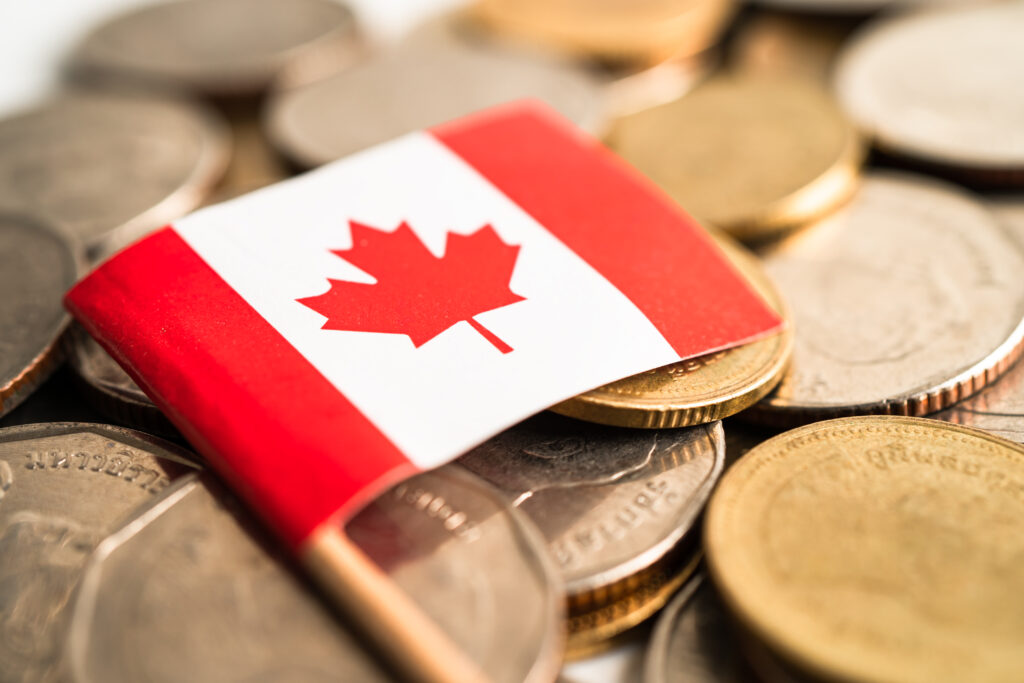If you’ve felt uneasy about your finances lately, you’re not alone. A significant 83% of Canadians have adjusted their financial plans to cope with rising economic uncertainty. With factors like inflation, housing crises, and fluctuating trade dynamics shaping the landscape, it’s time to talk about why long-term financial planning is essential in Canada’s economic uncertainty. Adopting a farsighted approach to your finances can help you build resilience and thrive even during turbulent times.
Canada’s Economic Landscape in 2025

Economic uncertainty has become the new normal in Canada. The FP Canada 2025 Financial Stress Index reports that 42% of Canadians rank money as their leading source of stress, outpacing concerns about health and relationships. Inflation and the cost of living remain significant pain points, with grocery prices impacting 64% of households, and housing affordability disproportionately affecting younger Canadians.
Trade tensions with the United States add another layer of complexity. Recent tariffs imposed by the US strain Canadian businesses, especially manufacturers, and could threaten jobs in trade-reliant sectors. Add to this the declining value of the Canadian dollar, and it’s no wonder families are cutting costs and reassessing their priorities.
However, despite this financial tightrope, there’s a silver lining. Canadians working with professional advisors, like Certified Financial Planners, are growing more optimistic, with 60% expressing hope about their financial future in 2025 compared to just 50% in 2023.
Why Long-Term Financial Planning Matters More Than Ever
Long-term financial planning isn’t about predicting the future. It’s about being prepared for it. Here are four reasons why Long-Term Financial Planning is essential in Canada’s Economic Uncertainty:
1. Combatting Financial Stress
Money-related stress is at an all-time high, affecting nearly half of Canadians. Understandably so—with inflation, high housing costs, and everyday essentials like food seeing continued price hikes, it’s hard not to feel overwhelmed. However, 88% of Canadians believe that actions like creating a well planned budget, saving for an emergency fund, can help. Long-term planning ensures you’re not just surviving financially, but living with peace of mind.
2. Preparing for External Economic Impacts
From tariffs to trade wars, Canada does not exist in an economic bubble. For example, US tariffs could disrupt Canadian industries, such as increasing consumer costs and layoffs. Brassard, a well-known Canadian economist, warns of “weaponized uncertainty” as global trade disputes continue to loom. Long-term planning can help mitigate risks from these external shocks by diversifying investments, managing debt, and strengthening your financial safety net.
3. Addressing Generational Challenges
Younger Canadians (ages 18-34) face unique challenges. With nearly half reporting concerns over unaffordable home prices and high rents, their financial realities differ significantly from older generations. Long-term financial planning includes tools like Tax-Free Savings Accounts (TFSAs) and First Home Savings Accounts (FHSAs), which can help younger Canadians create a roadmap to homeownership while maintaining financial health.
4. Staying Ahead of Rising Costs
Consumer prices aren’t returning to pre-pandemic levels anytime soon. Long-term financial planning helps you adapt to these changes by accounting for higher costs in your budget, ensuring your retirement goals stay intact despite inflationary pressures.
US-Canada Tariffs and Their Ripple Effects

The ongoing US-Canada tariff landscape could have long-term implications. Key industries like manufacturing and agriculture are already under strain, with Canadian exporters often shouldering increased costs. A weakened Canadian dollar only magnifies this issue, making imports more expensive—which ultimately hits your wallet.
For people, these tariffs can mean paying more for goods and seeing job losses in certain industries. That’s why it’s so important to future-proof your finances. Make sure your long-term plan includes an emergency fund and multiple income streams to help you navigate these tricky trade challenges.
The Role of Professional Advice
One of the smartest moves you can make is consulting a financial professional. The 2025 Financial Stress Index revealed that those who seek professional help are not only less likely to feel financial stress, but also better equipped to overcome economic obstacles. For instance, just 34% of Canadians working with financial planners said money was their top stressor, compared to 48% without guidance.
Financial advisors can help you craft a customized strategy, optimize savings vehicles like Registered Retirement Savings Plans (RRSPs) and TFSAs, and offer a clear path to achieving long-term goals. Their expertise can also untangle complicated financial decisions in volatile times, giving you the confidence to move forward.
Take Control of Your Financial Future
While uncertainties may remain, the steps you take today can provide clarity and stability tomorrow. Whether it’s setting up an emergency fund, learning investment basics, or simply starting a budget, the key is to stay intentional with your money.
A long-term perspective allows you to maneuver economic hurdles with confidence, whether you’re a young Canadian saving for your first home or a retiree, ensuring your savings outlast inflation. And with uncertain times ahead, Long-Term Financial Planning is essential in Canada’s Economic Uncertainty.
By prioritizing financial literacy, leveraging professional expertise, and being proactive about your goals, you can stand resilient through any storm. Now is the time to take action, so your financial future isn’t just secure, but thriving.



